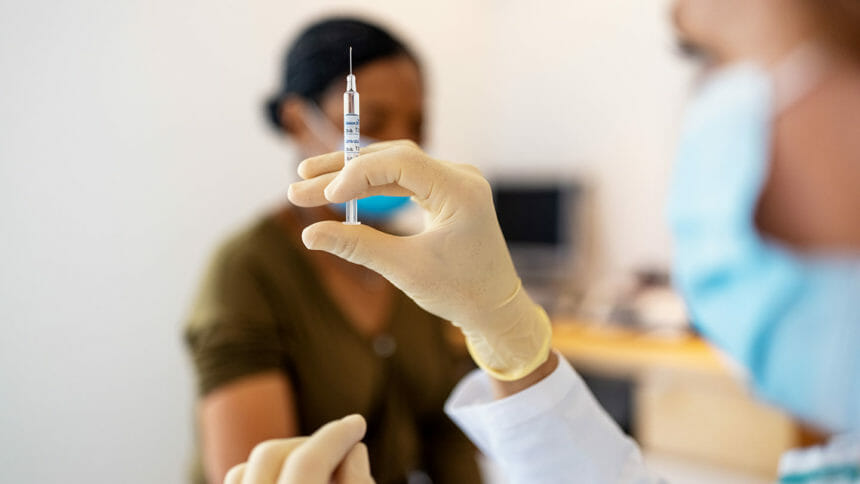
Receiving at least one dose of a COVID-19 vaccine before getting infected is linked to a lower risk for developing long COVID, a study published last week in The BMJ today found.
Researchers looked at data from 589,722 adults in Sweden who became infected between December 2020 and February 2022. The team followed the people from their initial infection until they were diagnosed with long COVID, received a vaccine, developed COVID-19 again or died — whichever came first, if any. The scientists followed up with subjects for an average of 129 days each.
Unvaccinated individuals were almost four times as likely to be diagnosed with long COVID compared to those who received their vaccine before getting infected. Of 299,692 people who had COVID-19, 0.4% went on to develop long COVID compared to 1.4% who were unvaccinated. People who received one or more COVID-19 vaccines before first contracting COVID-19 were 58% less likely to receive a diagnosis of long COVID compared to those who weren’t vaccinated.
Vaccine effectiveness rose when people got more doses before infection. In other words, the first dose lowered the risk of long COVID by 21%, two doses by 59% and three or more doses by 73%.
“The results from this study highlight the importance of complete primary vaccination coverage against covid-19, not only to reduce the risk of severe acute covid-19 infection but also the burden of post-covid-19 condition in the population,” the authors wrote.
The authors said researchers should keep looking into long-term residual symptoms of COVID-19 and other viral illnesses in order to “improve the accuracy of recording both recovery and continued illness after infection, and in quantifying key family, social, financial, and economic outcomes.”
“Such estimates are fundamental to unlocking the funding required for future research and increased investment in specialist clinical services offering treatment and rehabilitation to support patients with post-viral conditions,” the authors wrote.





